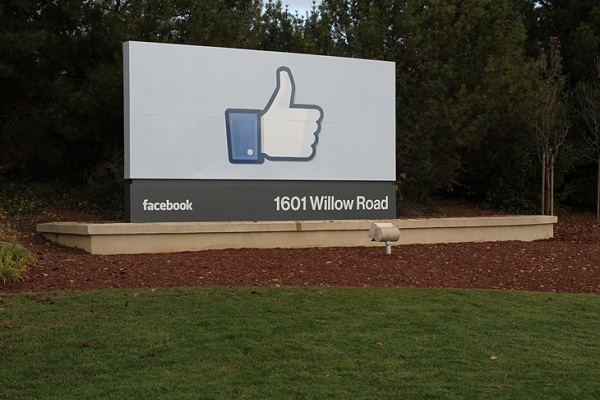Facebook, LinkedIn and Twitter: Social networking ultimate guide
Part one of our guide looks at the benefits of social networking for businesses and employees alike.


Facebook, LinkedIn and Twitter are just three examples of the vibrant world that is social networking. Or social media as some also call it. Today, it seems everyone is jumping on the social networking bandwagon. There are anecdotes a plenty flying around of the business chief or manager asking "Are we doing social networking/social media?". It's a potentially very dangerous game to be entering with your eyes not entirely open, or perhaps more realistically, looking in the wrong direction.
Having a social networking presence isn't just about putting up a Facebook page and hoping for the best. There are many benefits to social media; the trick is knowing the right way to go about it.
Social networking has transformed the landscape of the internet over the last few years. No longer is it just a place where people can find old friends and keep everyone updated with the ins and outs of their lives, the business world too can use social networks to keep in touch with their customer base, garner loyalty, respond promptly to address and resolve dissatisfaction and more.
It's better to be involved and engaged than be an ostrich while your competitors are busy raising their profile and garnering communities of their own.
That said, according to a survey carried out by CompTIA in 2012, while most organisations have a presence on Facebook (82 per cent), Twitter (68 per cent) and LinkedIn (68 per cent), less than 20 per cent of respondent use social enterprise tools to build a coherent strategy for engaging with customers, partners and employees via social networks.
And yet the same survey of business and IT executives found that the benefits of using social networking enterprise tools were better communication with clients (61 per cent), brand positioning (49 per cent), real-time customer satisfaction (48 per cent) and potential lead generation (43 per cent).
Desire without the right drive
Chris Lee, digital strategist and trainer, at Planet Content says that businesses need a social networking presence because, whether companies like it or not, a conversation is happening about them out there on the internets.
Get the ITPro daily newsletter
Sign up today and you will receive a free copy of our Future Focus 2025 report - the leading guidance on AI, cybersecurity and other IT challenges as per 700+ senior executives
"It's better to be involved and engaged than be an ostrich while your competitors are busy raising their profile and garnering communities of their own," he says. "There are also massive opportunities to build advocacy, sell products and compete better on search engines."
For Kate Craig-Wood, managing director of Memset, having a social networking presence is definitely a boon.
"Often customers who are unhappy won't tell us but may mention it on Twitter or Google+," she says. "We can then try to remedy the situation, publicly, which generally results in us being able to demonstrate our flexibility and passion for customer service. We are a very open, transparent and honest company so engaging with our customers and others in this way fits us well."
Craig-Wood adds that if you don't have a social networking presence then you are deaf to the conversations about you. Without doubt that is definitely a hindrance rather than a help.
Rather than relying on a huge marketing budget, UK start-up and e-shopping firm Flubit decided to build up a community through Facebook and Twitter. The aim was to have regular dialogue with customers and drive increased word-of-mouth referrals as a result.
"One of the biggest benefits of having strong social media presence is not only building relationships but also building credibility and trust," says Gary Dalton, head of marketing at Flubit. "It's particularly important for a startup as it means that consumers will be more willing to give you a try if they can see you are active socially."
Rene Millman is a freelance writer and broadcaster who covers cybersecurity, AI, IoT, and the cloud. He also works as a contributing analyst at GigaOm and has previously worked as an analyst for Gartner covering the infrastructure market. He has made numerous television appearances to give his views and expertise on technology trends and companies that affect and shape our lives. You can follow Rene Millman on Twitter.
-
 Bigger salaries, more burnout: Is the CISO role in crisis?
Bigger salaries, more burnout: Is the CISO role in crisis?In-depth CISOs are more stressed than ever before – but why is this and what can be done?
By Kate O'Flaherty Published
-
 Cheap cyber crime kits can be bought on the dark web for less than $25
Cheap cyber crime kits can be bought on the dark web for less than $25News Research from NordVPN shows phishing kits are now widely available on the dark web and via messaging apps like Telegram, and are often selling for less than $25.
By Emma Woollacott Published
-
 The creator effect: Shaping the future of travel
The creator effect: Shaping the future of travelWhitepaper The way forward for the travel sector
By ITPro Published
-
 How digital marketing will evolve beyond social media
How digital marketing will evolve beyond social mediaIn-depth Twitter's ongoing destabilisation proves businesses can't rely on social media for digital marketing forever
By Elliot Mulley-Goodbarne Published
-
 TikTok launches programme to help SMBs with social media marketing
TikTok launches programme to help SMBs with social media marketingNews Six-week initiative aims to equip businesses with the skills they need to get started on the social platform
By Daniel Todd Published
-
 Google accused of colluding with Facebook over advertising auctions
Google accused of colluding with Facebook over advertising auctionsNews The deal was designed to "kill competition" within the market, a multi-state lawsuit claims
By Sabina Weston Published
-
 Snapchat now allows you to display subscriber numbers
Snapchat now allows you to display subscriber numbersNews This update will help companies to show their influence on their industries
By Tyler Omoth Published
-
 New chatbot and nano influencer services help online sellers
New chatbot and nano influencer services help online sellersNews Online sellers will be able to grow brand awareness, boost buying frequency and build brand loyalty
By David Gargaro Published
-
 Facebook launches a unified UI for managing small business accounts
Facebook launches a unified UI for managing small business accountsNews The social network has also released consumer surveys that show encouraging stats for local SMBs
By Bobby Hellard Published
-
 Businesses should act fast during upcoming Twitter purge
Businesses should act fast during upcoming Twitter purgeNews Twitter is freeing up dormant accounts, with hugely valuable handles available to the fastest fingers
By Connor Jones Published